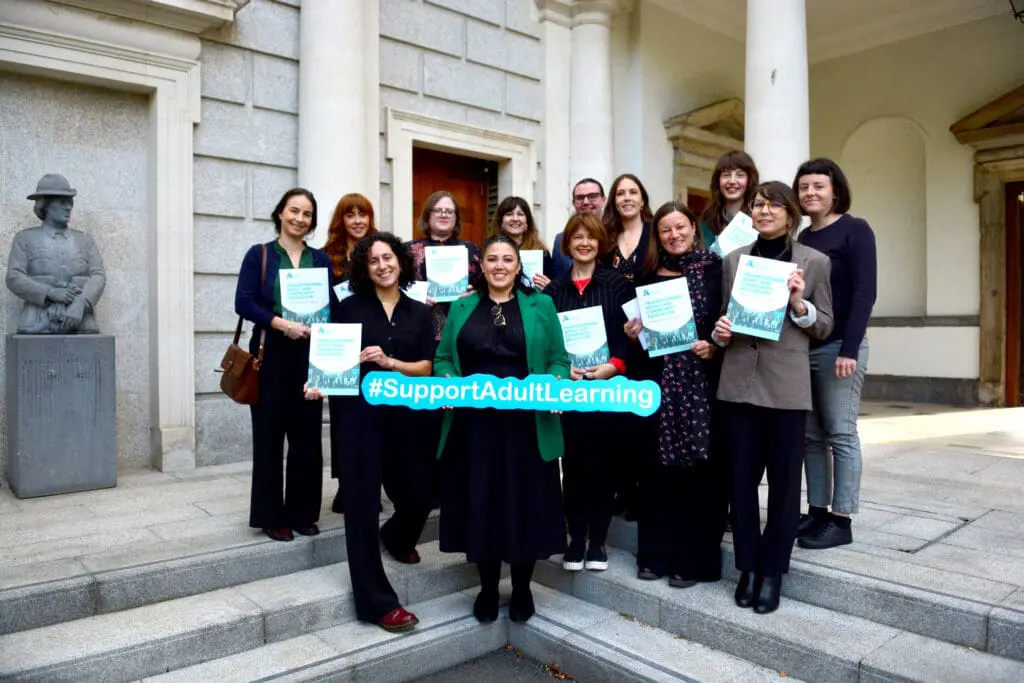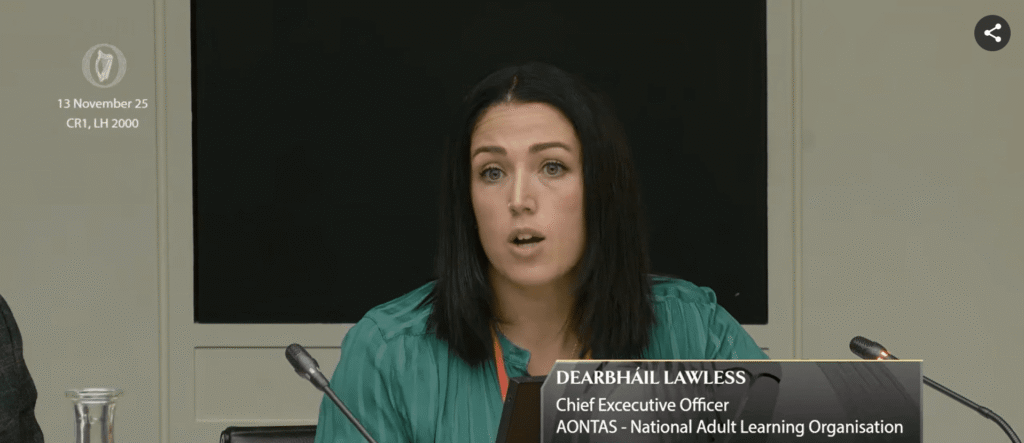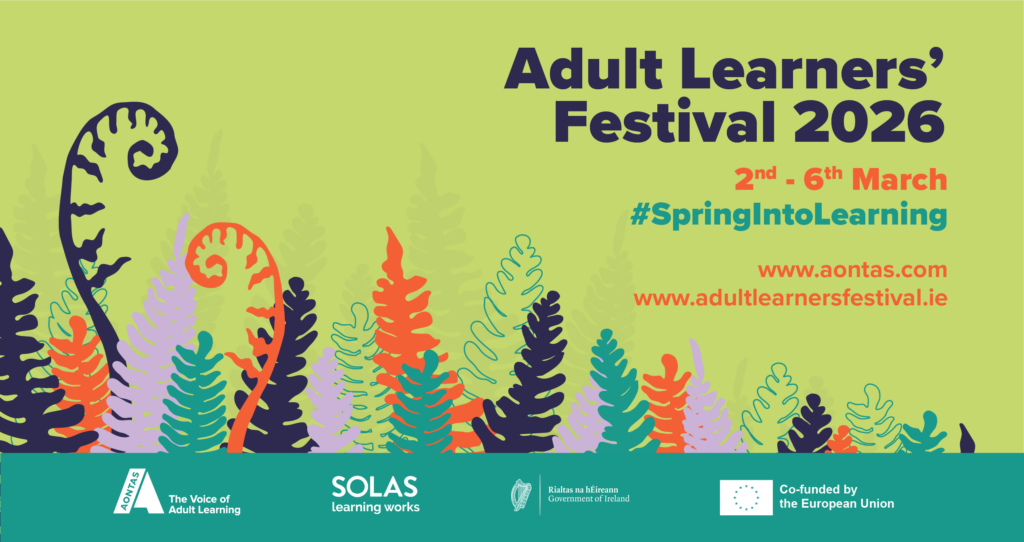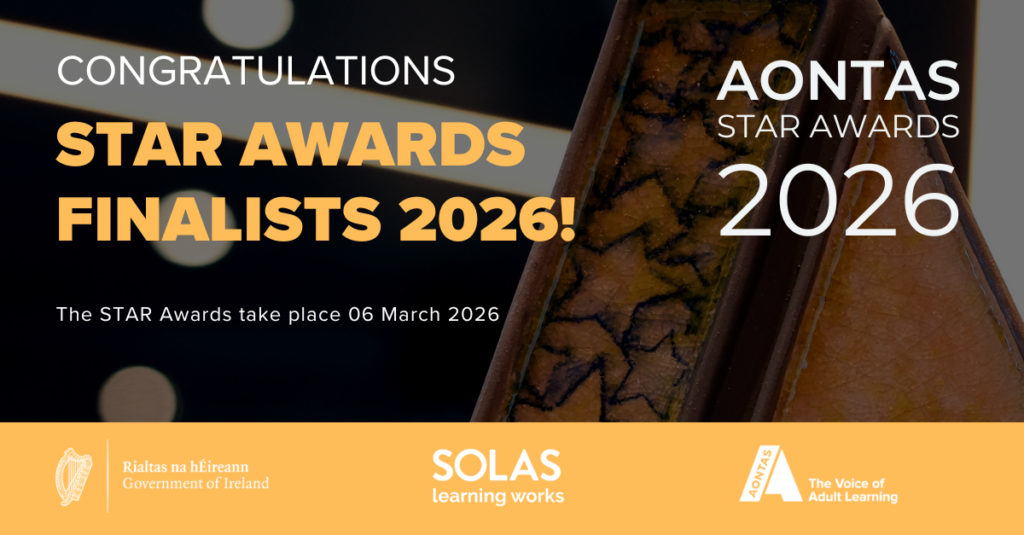Budget 2025 will have an impact on adult and community education, and the learners it supports.
Unfortunately, this Budget has missed an opportunity to address the structural barriers to education that would support the participation of more groups who face the greatest barriers to accessing adult and community education.
Community Education
We asked for Community Education Funding to be increased by 30%.
This would have brought the level of funding up from €22.3 million including Reach Funding in 2023, to €23.3 million of core funding through Education and Training Board funding streams, with an additional €10 million through Reach Funding.
This change would have represented a fairer distribution of resources as the community education sector supports approximately 20% of all learners within the Further Education and Training (FET) system but receives just 2% of the overall funding budget for FET.
Budget 2025 will see an overall increase of 6.4% to the FET system with an increase of 14.8% the Skills Development Budget including an allocation of €150 million from the National Training Fund to support the development of apprenticeships and work related skills.
Unaccredited courses and programmes at Level 1 to 4 on the National Framework of Qualifications are not given the same recognition as higher awards when it comes to funding.
Courses like these, which are often offered by community education providers, are particularly important for people who have had negative experiences of education and who have suffered the impact of barriers such as poverty, addiction, and social inequality. It’s supportive environment is proven to help people come back to and stay in adult learning.
Yet the community education sector struggles with the impact of uncertain funding streams from diverse sources on staff retention, work planning, and administrative loads.
It is disappointing to see that the National Training Fund will not be specifically used to support access to entry level opportunities for learners who might face barriers or discrimination in their communities, given the €1.372 billion surplus. This surplus could be used to support learner entry points to education as this fund is primarily used for training at Level 5 and above on the NFQ .
Despite the increase in funding for the FET in Budget 2025, it is difficult to know if this will include increases for community education at this time. We believe that the community education sector should be explicitly recognised in the budget allocation process to support forward planning.
This would represent a recognition of the value that the community education sector delivers for individuals, our communities and the goal of social inclusion as recognised in the Community Education Framework and Future FET: Transforming Learning (The National FET Strategy).
Supports for Learners
One in three adult learners in the FET system are reliant on social welfare.
However, our research has shown that the financial supports available may not be enough to support learners at risk of poverty to progress in education.
We called for increased financial support for adult learners, including an increase of 24% for social welfare payments and 50% for supplementary allowances for food, transport, and accommodation that relieve the costs of education. This is in line with wider calls for social welfare to be benchmarked against the average wage so that the minimum essential standard of living can be achieved.
Budget 2025 has announced an increase of €12 euro across most adult weekly social welfare payments, as well as an increase of between €4 to €8 euro for qualified child dependants.
There has also been a focus on one off ‘cost of living’ measures to help with the impact of high inflation on household budgets over previous years. 
Budget 2025 includes changes that will benefit students in further and higher education and apprentices including once off reductions in the higher education student contribution fee, and an additional once off contribution of €10 million for the Student Assistance Fund for higher education students.
There will also be an increase in SUSI grants which are available for full time learners and students from Level 5 up, and a small number of part-time courses. The special rate of maintenance grant will increase by €1,200 per year and the standard rate maintenance grant thresholds and student contribution grant thresholds which will increase by 15 per cent. There will also be a further 33% reduction in student fees for apprentices.
Despite these improvements that will improve the affordability of access to further and higher education, these changes will not address the structural barriers to education faced by people at risk of marginalisation, or those who have not had the same opportunities as others.
These learners are more likely to engage with learning at Level 1-4, or on unaccredited courses. The current increases to social welfare rates fall far short of the 24% increase.
We called for across welfare payments and will fail to make sure adult learners are not living in poverty while taking part in education. The additional failure to increase the supplementary allowances for food, transport, and accommodation is not in line with the Funding the Future Options Paper (2023) recommendations.
The resulting stress on household budgets that may lead to the disengagement of disadvantaged learners from progression through education pathways. This will put stress on household budgets that may lead to learners living at risk of poverty having to leave courses or not being able to progress on to other programmes.
Summary
We will continue to advocate for the improved funding for the community education sector and increased financial support for adult learners. Adult and community education offers a clear solution for creating a more equal and inclusive Ireland by reaching out to, and supporting, people that have been marginalised. The sector must get the funding it needs to do this essential work.
To find out more about our advocacy work please see our Manifesto for Change.
For more information, please contact our Head of Advocacy Conor Thompson at cthompson@aontas.com.






